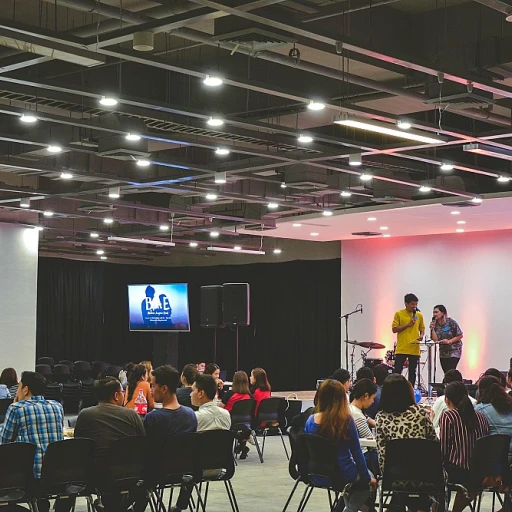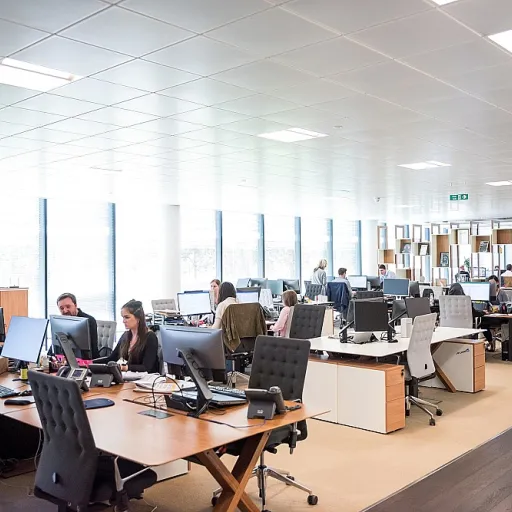
Understanding the link between personal qualities and employer branding
Why Personal Qualities Matter for Employer Branding
In today’s workplace, the qualities that candidates bring to the table go far beyond what’s listed on a resume. Companies are looking for more than just technical skills—they want employees who embody traits that align with their company culture and brand values. The link between personal qualities and employer branding is stronger than ever, especially as organizations strive to attract and retain the best employees in a competitive job market.
When hiring, employers evaluate not only a candidate’s skill set but also their soft skills and work ethic. Qualities like a positive attitude, adaptability, and strong problem-solving abilities are seen as essential for team success. These traits help create a positive work environment, support company goals, and ensure that employees can thrive even as job requirements evolve over time.
For candidates, understanding how their own qualities contribute to the company’s brand can make a real difference during the interview process. Being able to answer questions about teamwork, detail-oriented work, or customer service experience shows that you’re not just a fit for the role, but also for the broader goals of the company. In fact, companies that prioritize integrity and trustworthiness in their teams are more likely to build a strong employer brand that attracts top talent. For more on how trust shapes brand confidence, see building trust: the key to brand confidence.
As we move forward, it’s clear that the best employees are those who combine technical skills with positive qualities and a willingness to learn. These traits set not only help individuals stand out, but also contribute to a company’s reputation and long-term success.
Communication skills: more than just talking
Why Communication Skills Matter More Than Ever
In today's workplace, communication skills are not just about speaking clearly or writing well. They are about connecting with others, sharing ideas, and building trust within a team. Companies are looking for candidates who can express their thoughts, listen actively, and adapt their message to different audiences. This is especially important during the hiring process, where the ability to answer questions thoughtfully and demonstrate both technical skills and soft skills can set you apart.
Employers value employees who can:
- Share information effectively with team members and leadership
- Ask the right questions to clarify goals and expectations
- Demonstrate empathy and understanding in customer service situations
- Handle feedback with a positive attitude and use it for growth
Strong communication is also linked to other key qualities like problem solving and being detail oriented. When employees communicate well, they help prevent misunderstandings and create a positive company culture. This is crucial for building trust and integrity, which are essential traits for any role.
During a job interview, hiring managers often look for examples of how candidates have used their communication skills to resolve conflicts, support team goals, or adapt to changes. Including these experiences on your resume can help you stand out as a strong work candidate with a well-rounded skill set.
It's important to remember that communication is a skill that can be developed over time. The best employees are those who continue to learn, seek feedback, and refine their approach. In a post-covid pandemic world, where remote work and digital collaboration are common, being able to communicate clearly and confidently is more valuable than ever. For more insights into how communication impacts workplace dynamics, you can explore this resource on understanding the impact of hostile work environments.
Adaptability in a fast-changing work environment
Thriving Amid Change: Why Adaptability Matters
The workplace has changed dramatically, especially since the covid pandemic. Companies now look for employees who can adapt quickly to new challenges and shifting priorities. Adaptability is more than a buzzword—it's a core trait that helps candidates stand out during the hiring process and in their daily work. Employers value candidates who demonstrate a positive attitude when faced with change. Whether it's learning new technical skills, adjusting to remote work, or taking on a new role, adaptable employees show they can handle uncertainty and still deliver strong work. This flexibility is often highlighted in a resume or job interview, where sharing real examples of problem solving and quick learning can make a big difference.- Continuous learning: The best employees are always updating their skill set, combining soft skills with technical expertise to stay relevant.
- Open-mindedness: Being willing to try new approaches and listen to team members' ideas helps build a resilient team.
- Resilience: Adaptable employees bounce back from setbacks and keep working toward company goals, even in uncertain times.
Collaboration and teamwork as a core value
Why Teamwork Drives Company Success
Collaboration is more than just a buzzword in today's workplace. As companies adapt to new challenges and shifting goals, the ability for employees to work together effectively has become a core value. Employers are looking for candidates who not only have the right technical skills but also bring a positive attitude and strong work ethic to their teams. These qualities help create a supportive environment where everyone feels confident to share ideas and solve problems together.
- Team members with strong collaboration skills are often the best employees because they understand how to balance individual goals with the needs of the group.
- In the job interview process, hiring managers pay close attention to examples of teamwork and problem solving on a candidate's resume. They want to see how you have contributed to a team, not just your personal achievements.
- Soft skills like communication, empathy, and being detail oriented are just as important as technical skills when it comes to building a successful team.
- During the covid pandemic, the importance of collaboration became even more clear. Remote work forced teams to find new ways to connect, share information, and support each other, making adaptability and teamwork essential traits for every employee.
Companies with a strong culture of collaboration tend to have higher employee satisfaction and better customer service. When employees feel valued and included, they are more likely to go the extra mile for the company and its clients. This is why hiring for collaborative skills qualities is now a top priority for many organizations.
If you want to stand out as a candidate, highlight your experience working in teams and your ability to contribute to a positive company culture. Show how your skill set can help the company achieve its goals, and be ready to answer questions about teamwork during the interview process. Employers are looking for more than just individual talent—they want employees who can help the whole team succeed.
Integrity and trustworthiness in building a strong brand
Building Trust Through Everyday Actions
In today’s workplace, integrity and trustworthiness are not just buzzwords—they are essential qualities that shape a company’s reputation and culture. When employees consistently demonstrate these traits, they help create an environment where everyone feels confident to share ideas, take risks, and work towards common goals. This is especially important during the hiring process, as companies look for candidates whose actions align with their stated values.
Employers pay close attention to how candidates present their skills and experience on a resume and during a job interview. Being honest about your skill set, whether it’s technical skills or soft skills like problem solving and customer service, is a sign of strong work ethic. The best employees are those who not only have the right skills qualities for the role but also show a commitment to ethical behavior in every situation.
- Consistency: Employees who follow through on their promises and maintain high standards, even when no one is watching, build trust within the team.
- Transparency: Open communication about challenges and mistakes fosters a culture of learning and continuous improvement.
- Accountability: Taking responsibility for actions, both good and bad, shows maturity and a positive attitude that inspires others.
During the covid pandemic, companies saw firsthand how important it is to have team members who can be relied on in uncertain times. Integrity became a key factor in how employees navigated rapid changes, supported each other, and upheld company culture. As organizations continue to evolve, those who prioritize trustworthiness and a strong work ethic will stand out—not just as individuals, but as contributors to a brand that attracts top talent and loyal customers.
Continuous learning and growth mindset
Why a Growth Mindset Matters in Today’s Workplace
In the modern workplace, the ability to learn and adapt is more than a nice-to-have. It’s a core quality that sets the best employees apart. Companies are looking for candidates who not only have the right skill set for the job but also demonstrate a commitment to continuous learning. This trait is especially valuable as the workplace evolves rapidly, with new technologies and processes emerging all the time.
Employers want to see that employees are proactive about updating their skills and staying current. Whether it’s technical skills, soft skills, or industry-specific knowledge, the willingness to learn shows a positive attitude and a strong work ethic. It also signals that an employee will be able to handle new challenges, contribute to team goals, and support the company’s growth.
- Problem solving: Employees who embrace learning are often better at finding solutions and thinking creatively.
- Detail oriented: Continuous learners tend to notice changes and improvements that others might miss.
- Adaptability: The covid pandemic highlighted how crucial it is for team members to pivot quickly and learn new ways of working.
During the interview process, hiring managers look for evidence of this mindset. Candidates who can share examples of how they have learned new skills or adapted to change will stand out. It’s not just about what’s on the resume; it’s about showing a genuine interest in growth and improvement.
For employees, investing time in learning—whether through formal courses, on-the-job experiences, or self-study—demonstrates a commitment to their role and the company. It also helps build a positive company culture, where everyone feels confident to take on new challenges and support each other’s development. In the end, fostering continuous learning is a win-win for both employees and employers, shaping a workplace where everyone can thrive.













